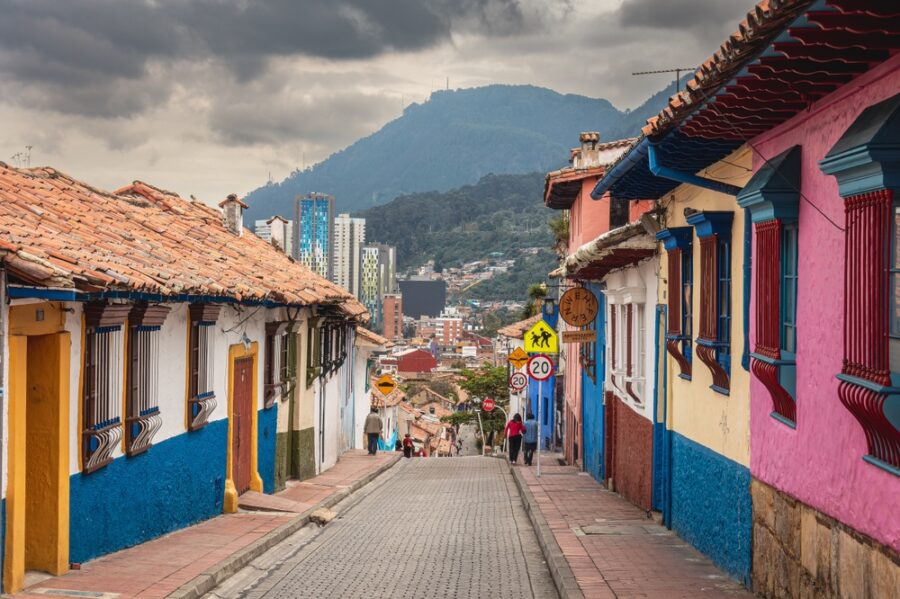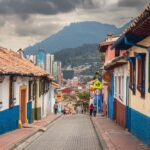Coljuegos joins forces with Valle del Cauca governor’s office to curb illegal gambling

Colombia’s gambling regulator, Coljuegos, has partnered with the Valle del Cauca governor’s office and the state-run Valle Lottery to tackle illegal games of chance that divert funds intended for public healthcare.
Under the agreement, the three entities will coordinate enforcement actions against unlicensed operations, including illegal raffles, unregistered “white chance” games, and underground casinos in the region.
Marco Emilio Hincapié, President of Coljuegos, said the cooperation pact strengthens collective responsibility for safeguarding healthcare resources.
Hincapié added, “This is the 41st legality pact we have signed. We are calling on all governorates, lotteries, and concessionaires to join the fight against unauthorized games. Protecting resources for health is a shared responsibility.”
Between January and August 2025, legal lotteries and other authorized games, including Rasp & Listo, contributed around COP426.5 million to Colombia’s health system, according to the regulator.
Valle del Cauca Governor Dilian Francisca Toro said that approximately COP48 billion from gaming proceeds had already been allocated to the department’s healthcare sector this year.
Rubén Felipe Lagarejo, president of Fedelco and manager of the Valle Lottery, added, “Legality must be a constant to protect health transfers that support the most vulnerable. Games of luck and chance not only strengthen the subsidized system but also generate jobs across the country.”
The move follows a concession awarded to the lottery game Keno earlier in the month by Coljuegos, with the lottery game expected to generate as much as COP485 billion towards healthcare over five years.
Abi Bray brings strong researching skills to the forefront of all of her writing, whether it’s the newest slots, industry trends or the ever changing legislation across the U.S, Asia and Australia, she maintains a keen eye for detail and a passion for reporting.
Verticals:
Sectors:
Topics:
Dig Deeper
The Backstory
Why past crackdowns and concessions matter now
Colombia’s gambling market has been repositioning itself this year as both a public-health funder and a tighter-regulated ecosystem, a shift that colors the stakes in today’s story. In August, the national regulator Coljuegos teamed with the Valle del Cauca governor’s office and the state-run Valle Lottery to coordinate raids and compliance sweeps against unlicensed games diverting money from hospitals and clinics. The cooperation pact, the forty-first of its kind, targets everything from illegal raffles and unregistered “white chance” draws to underground casinos, and channels proceeds back to the health system. The regulator said authorized operators contributed roughly COP426.5 million to health between January and August. Valle del Cauca reported COP48 billion already directed to its own care network. That initiative, detailed in Coljuegos joins forces with Valle del Cauca governor’s office to curb illegal gambling, followed the award of a new Keno concession and signaled a dual-track strategy: expand the legal product set while tightening enforcement against the gray and black markets siphoning revenue.
Technology bets in Bogotá, and the compliance message behind them
The Keno concession itself shows how regulators are tying innovation to legitimacy. In Keno added to licensing regime in Colombia, Coljuegos said the lottery-style game will use blockchain for ticket issuance to make auditing easier and consumer confidence higher. Four regional operators will roll out more than 16,000 sales terminals ahead of a January 2026 launch. Officials project the game could generate more than COP485 billion for health over five years, with national sales estimated at COP2.3 billion. The timing is not incidental. By publicizing a transparent, competitive award process and a technology-forward safeguard, the regulator nudged consumers toward licensed channels and gave operators a compliance blueprint. It also undercut a common illicit-market advantage—speed to market—by promising a modern user experience in the legal sphere. That two-step of product expansion plus enforcement, previewed by the Valle del Cauca pact, has become a template for jurisdictions trying to convert illegal demand without losing sight of integrity risks.
Integrity pressure reshapes betting menus in U.S. leagues
North American sports are wrestling with a different, but related, legitimacy test: whether micro markets and player props invite manipulation and abuse. The NBA and its players union aligned on restricting certain bet types after a series of probes, including the high-profile Jontay Porter case, in which the player pleaded guilty to federal conspiracy charges tied to prop bets he could influence. That campaign, captured in NBA union calls for bet limits to curb athlete abuse, prompted the league and sportsbooks to pare back markets like “unders” for two-way contract players and consider broader limits. The crackdown echoes similar steps in baseball and in state-level rules in Ohio and New Jersey. The throughline to Colombia’s playbook is clear: the more granular the wagering menu, the more regulators and leagues must police inside information and deliberate underperformance. Trimming volatile markets is becoming a risk-control tool, even if it means short-term handle trade-offs, because it shores up trust with fans, athletes and policymakers.
Training and lived experience as a guardrail for a fast-growing audience
Education has emerged as a complementary lever to market design and enforcement. In Puerto Rico, online operator BetMGM teamed with brand ambassador Carlos Arroyo and Casino del Mar to deliver what they described as the island’s first post-legalization responsible gambling training for professional athletes. The session featured Stevin “Hedake” Smith, the former college star who served time for point shaving and now works with EPIC Global Solutions on gambling-harm awareness and integrity. The program, reported in BetMGM and Casino del Mar launch responsible gambling training for Puerto Rican athletes, targeted teams from the island’s top men’s and women’s basketball leagues and drew regulators and federation officials. The logic is straightforward: leagues can limit bet types, but athletes still face social and financial pressures. First-person cautionary accounts paired with practical guidance can deter misconduct and reduce harm before policy must intervene. That prevention lens is becoming standard in markets where legal betting is expanding faster than institutional norms can adapt.
Academic rigor races to catch up with the betting boom
The growth spurt in legal sports betting has outpaced peer-reviewed research, especially outside the United States. That gap is narrowing as universities mount focused efforts to study market effects, advertising and vulnerable populations. In Brock University professor joins group addressing gambling boom, Brock University’s Michael Naraine became the first Canadian member of San Diego State University’s Institute on Sports Wagering and Gaming, which convenes researchers and policymakers on evidence-based practices. The institute’s mission and resources are outlined at ISWAG. Naraine flagged Canada’s lack of sports betting–specific data, even as Ontario ranks among North America’s most active jurisdictions, and cited rising searches for gambling addiction in several U.S. states as a warning sign. Academic work can add empirical ballast to policy debates over prop limits, advertising standards, athlete education and indigenous and youth impacts. For regulators and operators, that research helps calibrate compliance obligations with commercial realities before scandals force blunt restrictions.
Illicit networks remain agile, reinforcing the case for coordination
As legal frameworks tighten, illegal operators continue to pivot—often across borders. Malaysian authorities recently dismantled a Kuala Lumpur call center that posed as a legitimate business while pushing online gambling to the Indonesian market. The joint police raid, described in Online gambling syndicate busted in Kuala Lumpur office raid, netted 13 arrests and a trove of equipment tied to daily operations since April. The case underscores a persistent reality: illicit outfits can exploit regional demand and digital tools to evade national rules, undercut tax flows and erode public trust in licensed systems. That is the same pressure Colombia is trying to blunt with coordinated enforcement and a beefed-up legal offering, and the same incentive behind U.S. leagues’ move to simplify riskier betting markets. The common denominator is collaboration—among regulators, law enforcement, leagues, operators, educators and researchers—to keep legal markets attractive while shrinking the room for abuse. Without that alignment, enforcement becomes whack-a-mole and the policy center fails to hold.








